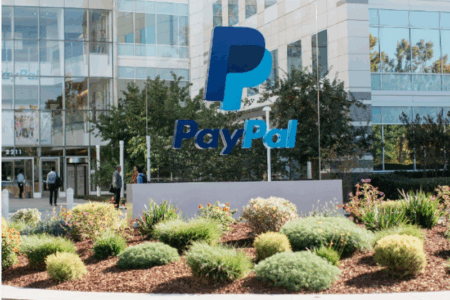Welcome to this week’s edition of top stock market highlights.
Singapore Airlines Limited (SGX: C6L)
Singapore Airlines Limited, or SIA, released a blowout set of earnings for its fiscal 2024 (FY2024) ending 31 March 2024.
Revenue rose 7% year on year to S$19 billion while operating profit inched up 1.3% year on year to S$2.7 billion.
SIA’s net profit came in at S$2.7 billion, with both operating and net profit at their highest level in the blue-chip group’s history.
The better results were driven by robust demand for air travel which drove record passenger revenue and load factor.
Singapore’s flagship carrier, however, saw its free cash flow halve year on year from S$7.4 billion in FY2023 to S$3.7 billion in FY2024.
The group declared a final dividend of S$0.38 per share, a 36% jump from the previous year’s S$0.28.
Coupled with the interim dividend of S$0.10, FY2024’s total dividend came up to S$0.48, giving SIA’s shares a trailing dividend yield of 7.1%.
As of 31 March 2024, SIA’s operating fleet comprised 200 aircraft with an average age of seven years and three months.
As of 1 May 2024, SIA had 89 aircraft on order and its fleet should increase to 209 aircraft by the end of FY2025.
As of FY2024, the group’s network covered 118 destinations in 35 countries and territories.
SIA is also actively expanding its loyalty program KrisFlyer.
As of 31 March 2024, there were 8.8 million KrisFlyer members, up 31% year on year.
Although air travel demand remained strong for the first quarter of FY2025, the airline warned of challenges such as rising geopolitical tensions, an uncertain economic climate, supply chain constraints, and high inflation throughout the globe.
Alphabet (NASDAQ: GOOGL)
There were many exciting announcements at I/O, Google’s annual developer conference held in Mountain View, USA.
The highlight of the session was the words “artificial intelligence” or AI which had been uttered 121 times by Alphabet CEO Sundar Pichai.
The essence of the event was to embed AI into every Google app and service used by nearly two billion people around the world.
First off, the company announced a brand-new AI model called Gemini 1.5 Flash which has been optimised for speed and efficiency.
Flash was created because developers wanted a light and less expensive model compared with Gemini Pro that they could use to build AI-powered apps.
There’s more.
Later this year, Google plans to double Gemini’s context window from the current one million tokens to two million, allowing the software to process two hours of video, and 22 hours of audio, and write more than 60,000 lines of code at the same time.
The company also showed off its newest universal assistant dubbed Project Astra.
In a video posted that Google claimed was taken in a single shot, the assistant has a natural conversation with the user on various aspects of real life and even reminds the user where she left her glasses.
The glasses themselves come equipped with an onboard camera system that is synched with Project Astra, allowing the user to seamlessly connect with the AI even without her phone.
There were also other upgrades presented for Google Photos which will allow for more complex queries that can generate more specific search results with the ability to caption before these photos are posted on social media.
Google Search itself will receive large changes to allow for complex questions and will also present AI-generated answers on top of the default search results.
OpenAI
OpenAI, which Microsoft (NASDAQ: MSFT) invested in, also came up with some updates of its own.
Just this week, the AI startup unveiled a new version of its ChatGPT chatbot that can receive and respond to voice commands, images, and videos.
The new app is based on an AI system called GPT-4o and can juggle audio, images and video much faster than previous versions.
OpenAI will gradually share this technology with users in the coming weeks and this is the first time that the AI startup offered a desktop application.
The new app was showcased in a video helping to analyse math problems and reading aloud stories that were written on the fly.
Although the new app cannot generate video, it can generate still images that represent frames of a video.
Although the new app seems promising, skills that were “learnt” using internet data can still be prone to error.
Sometimes, information is made up entirely in what are known as “hallucinations”.
The technology behind GPT-4o is now more efficient than prior versions and this allows the company to offer it for free.
Dive into the future of technology with our newest FREE report, “The Rise of Titans.” Discover how the big 7 US tech stocks can be your ticket to huge long-term gains. Download your copy today and see how easy it is to supercharge your portfolio.
Follow us on Facebook and Telegram for the latest investing news and analyses!
Disclosure: Royston Yang owns shares of Alphabet.





